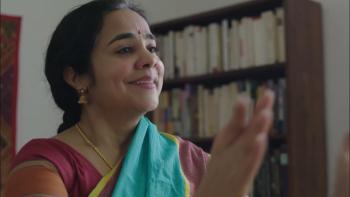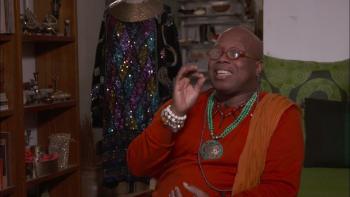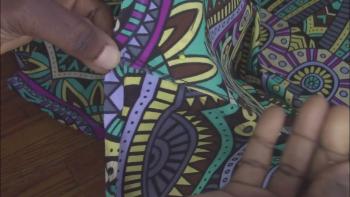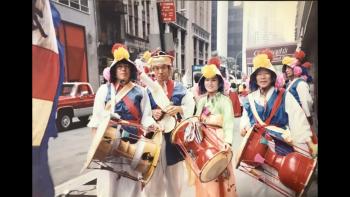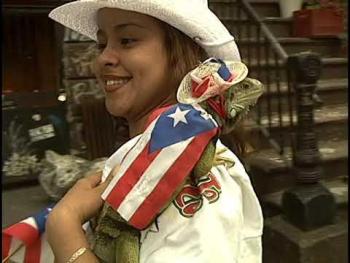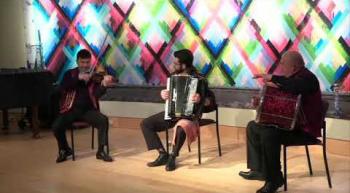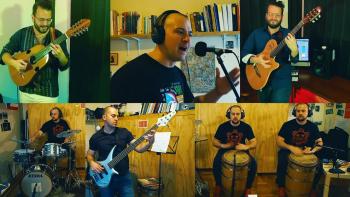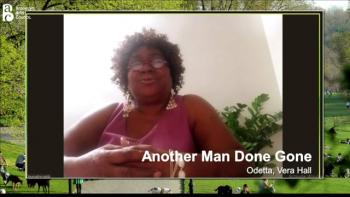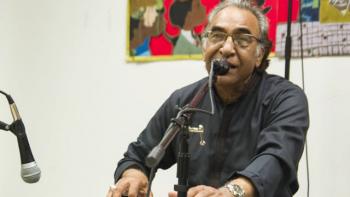New York City
Manhattan, The Bronx, Queens (Queens), Kings (Brooklyn), Richmond (Staten Island)
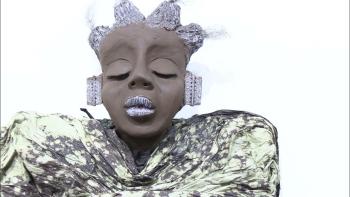
"The Calling: The Transformative Power of African American Doll and Puppet Making" is an exhibition of dolls and puppets created by senior African American multi-media artists. These artists came of age in strong African American communities during the height of the Civil Rights Movement. They are storytellers who use various forms of mixed media to chronicle the history, identity, and culture of their communities. These artists recognize that their works are healing and transformative for themselves and for the communities they represent.
Material Culture
All of us as have two experiences in common — birth and death. One is greeted with joy and celebration; the other is often accompanied by a wide range of emotions such as fear, relief, sorrow, joy, grief, and loss. In the process of dying, and in death itself, cultural practices and rituals play a key role in the individual’s and family’s experience of end-of-life. Understanding how death and dying have come to be expressed in culturally-specific traditions and diverse art forms offers remarkable insight into end-of-life situations, allowing healthcare professionals to develop essential cultural competencies and increased empathy.
The End-of-Life Toolkit is a set of resources that accompanies an eLearning course entitled “Heritage to Health: Harnessing the Power of the Arts for End-of-Life Care”. The Toolkit provides resources on death and dying, geared to both health professionals and the public. It contains links to textbooks, stories, poems, cultural perspectives on death and dying, as well as compelling video clips, examples of various art forms, and “how to” information for creating various types of memorials when an individual passes away. The Toolkit expands the opportunities for healthcare providers to enhance their skills in end-of-life care through the use of the Arts. It focuses on ways to create a culturally sensitive yet individualized environment for those at the end-of-life, using the Arts as a clinical tool for supporting patients’ beliefs, traditions, and customs in a meaningful way.
Developed by City Lore and the Nurse Practitioner Healthcare Foundation. Funded by the Robert Wood Johnson Foundation and the National Endowment for the Arts.
Dance
Belief
All of us as have two experiences in common — birth and death. One is greeted with joy and celebration; the other is often accompanied by a wide range of emotions such as fear, relief, sorrow, joy, grief, and loss. In the process of dying, and in death itself, cultural practices and rituals play a key role in the individual’s and family’s experience of end-of-life. Understanding how death and dying have come to be expressed in culturally-specific traditions and diverse art forms offers remarkable insight into end-of-life situations, allowing healthcare professionals to develop essential cultural competencies and increased empathy.
The End-of-Life Toolkit is a set of resources that accompanies an eLearning course entitled “Heritage to Health: Harnessing the Power of the Arts for End-of-Life Care”. The Toolkit provides resources on death and dying, geared to both health professionals and the public. It contains links to textbooks, stories, poems, cultural perspectives on death and dying, as well as compelling video clips, examples of various art forms, and “how to” information for creating various types of memorials when an individual passes away. The Toolkit expands the opportunities for healthcare providers to enhance their skills in end-of-life care through the use of the Arts. It focuses on ways to create a culturally sensitive yet individualized environment for those at the end-of-life, using the Arts as a clinical tool for supporting patients’ beliefs, traditions, and customs in a meaningful way.
Developed by City Lore and the Nurse Practitioner Healthcare Foundation. Funded by the Robert Wood Johnson Foundation and the National Endowment for the Arts.
Ritual
Belief
BPL Ambassador, Saratu Mshelia’s tutorial is to teach how to hand sew a Buba Blouse, a traditional Yoruba blouse of Southwestern Nigeria, as she tells us about her journey starting a fashion business based on Nigerian textiles.
Material Culture
Documentary interview with Chi-Chung Kim, a folklorist who specializes in Korean percussive music, by Vong Pak at Mr. Kim's home in Queens. Chi-Chung Kim speaks about his 70 years playing Korean traditional pungmul percussive music and what Korean music means to him."
Music
The display of la bandera puertorriqueña was pretty common all year long throughout the five boroughs of New York City, waving from car antennas, painted on wall murals, or draped from windows, fire escapes and card hoods; but from the end of May until the middle of June,prior to and during the National Puerto Rican Day Parade in Manhattan (always the second Sunday in June), it reaches its peak. It is hard to walk anywhere in the City without seeing the image proudly displayed or worn. Any item or apparel imaginable is adorned or decorated with the image: umbrellas, shorts, ties, fingernails, hats, jewelry, sunglasses. This was especially true from the late 1990s through the early 2000s. It appears as if this custom may have peaked a few years ago, and during the last few years the flag seems to be less visible in the time period leading up to the parade. This latest trend may have arisen due to do with grassroots and official campaigns intended to make sure the flag is used only in a respectful manner, a decline in the flag fever pitch of those years and recent economic and environmental crises on the island leading many to use a black and white monoestrellada to represent the dual ideas of mourning and resistance.
Place
Material Culture
Nariman Asanov performs the Crimean Tatar melody "Balaklava” with accompaniment by Patrick Farrell on accordion and Lenur Mamutov on percussion at the Ukrainian Museum in Manhattan, May 10, 2017.
Music
Stay Home - Quédate en Casa was submitted by Fernando L García Rodas for the NYC Beatz Coronavirus Song Contest
Music
Another Man Done Gone with updated lyrics in memory of George Floyd by Beareather Reddy
Music
Yaad Piya Ki Aaye performed by Salamat Ali at the Midwood Public Library in Brooklyn

